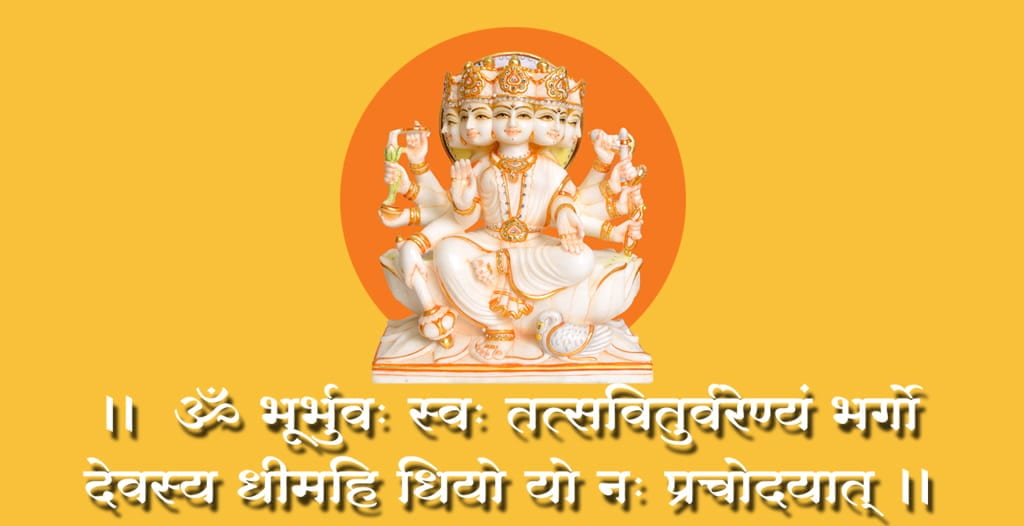Holy Scriptures
Significance of Gāyatrī Mantra: Women are debarred from chanting the holy mantra!

Read Time: 3 minutes
In Hinduism, the Gāyatrī Mantra is a highly valued mantra from the Vedas. However, it was never authored but believed to be added to Rig Veda by the great Sage Brahmarshi Viswamitra. Its recitation (hymn) begins with the sacred sound ‘OM’ followed by the mantra ‘bhūr bhuvaḥ svaḥ’, ending with the same sacred sound of ‘OM’. The significance of Gāyatrī Mantra has been mentioned in many of the holy books such as Bhagavad Gita, Garud Purana, Harivamsa, and Manusmriti. Here are some more facts about the sacred Gāyatrī Mantra.
- In Bhagavad Gita, Lord Krishna has said, “I am Gayatri among all mantras.” As per Hindu religious scriptures, Goddess Gāyatrī is the Mother of the Vedas and has omnipresence.
- Religiously, one can chant the Gāyatrī Mantra, at three ‘peher’ that is dawn, noon and dusk, since these are considered to be beneficial for spiritual practices. However, there are certain limitations to it. One cannot chant this mantra at any other time, apart from the three ‘peher’. Besides, while chanting the sacred mantra, one must have a clear mind and a pure heart.
- While chanting the Gāyatrī Mantra, one must focus on correct punctuation and recitation of each word. It is believed that the wrong chanting of mantra invites dangerous consequences.
- Women are advised NOT to chant Gāyatrī Mantra. In ancient times, Hindu women also used to bear ‘Janeu’ and participate in all religious rituals. However, after Goddess Parvati passed on the blessing of menstruation to women, they were not considered fit to adorn the ‘pious’, a religious thread which a person wears only after being purged by sacred Gāyatrī Mantra.
- Furthermore, when women go through pregnancy, they are advised to stay away from all the rituals and practices related to Gods and Goddesses, which involved chanting of Gāyatrī Mantra.
- As per Shastras, recitation of Gāyatrī Mantra impacts three pivotal chakras inside the human body namely, Mulaadhar, Swadhishthan, and Manipur and according to science, a human body has two main glands- pituitary and prostate, both of which impact gender growth. Therefore it is believed that the chanting of mantra impacts the functioning of both these glands.
- So, it is believed that if a woman regularly recites the Gāyatrī Mantra, she may develop growth hormones of the masculine gender. As a consequence, they may see unexpected growth of facial hair, misbalanced menstruation cycle and change of skin tone or color.
- Similarly, if a pregnant woman recites the holy mantra, she may experience complications in breastfeeding and find it difficult to conceive next time. They may also witness severe muscular pain and low bone density.





























